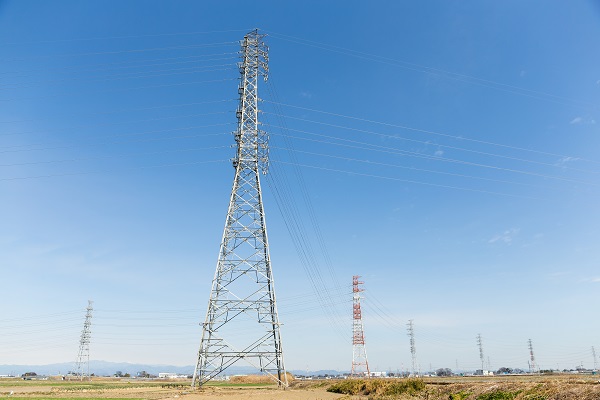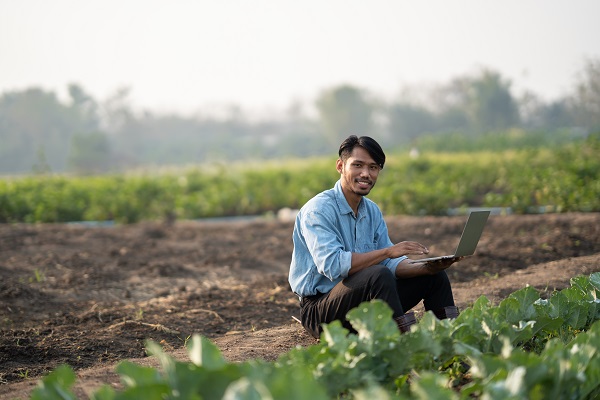Rural Pioneer Repeats Call for Regulators and Operators to Introduce Network Sharing
6 May 2019 – WTL, whose pioneering and innovative work to connect the unconnected in Africa has been widely recognised and received multiple awards, has repeated its call for an alternative approach to be adopted to help increase the number of networks built in rural Africa.

The ongoing unwillingness to invest in rural networks will mean that hundreds of millions* of Africans continue to experience Deliberate Digital Exclusion, a new term used by WTL to describe people who continue to be failed by traditional MNOs in Africa – and regulators.
Connecting the unconnected continues to be a huge issue in the industry with the UN listing increased access to ICT and universal and affordable access to the internet as 9c of its Sustainable Development Goals. However, progress has been slow.
To help address Deliberate Digital Exclusion, WTL has been championing the National Roaming model for several years. This has a two-part approach: it advocates the allocation of dedicated spectrum by the Regulator specifically for rural coverage and the building of new shared networks in rural areas where there is little or no coverage at the moment.
WTL has also developed the Vivada Rural Infrastructure Ecosystem, a multi-award-winning system specifically designed to provide voice, data, electricity and water in rural areas.
WTL’s innovative and far-sighted approach has been informed through its extensive work with MNOs of all sizes across Africa – and its regular outreach to the telecoms community which includes an annual survey of people from across the ecosystem.
WTL’s recent survey once again showed that, despite the significant investment in Africa’s telecom infrastructure, the cost of building rural networks combined with low ARPUs and a long ROI continue to be the major barriers to building rural networks.

- There was no agreement over which countries are managing to get things right which clearly shows that no one is taking the lead and progress has been limited.
- 38% of Respondents said that of all the operators in Africa, MTN is most ready to build rural networks. However, 23% said that no operators are really trying to address the issue which, of course, is disappointing.
- 54% agreed that operators are still concerned that installing a tower and radios in a rural village to provide Voice and Data is not profitable.
- However, people agreed that extra services could and should be added to make a rural network more profitable with an electricity supply, pre-paid Water and mobile banking all identified
- Showing that rural networks are needed for more than voice and simple internet, and that there are additional potential revenue streams, 77% of people who completed the survey agreed that IoT should be part of rural deployments with agriculture being the overwhelming sector followed by health.
- And finally 85% support WTL’s National Roaming vision and said that all elements of a rural network can be shared: Tower, Base Station, Backhaul etc.
Leigh Smith, MD of WTL, said 5G is already proving to be the hot topic of 2019. Unfortunately this is not an issue in much of Africa where we are still trying to connect millions of people for the first time. We are open to discussions with all stakeholders who are interested in collaborating to help break barriers, extend boundaries and deliver more coverage.
*The GSMA’s latest report ‘The Mobile Economy Sub-Saharan Africa 2018’ predicts that there will be 634 million unique mobile subscribers across Sub-Saharan Africa by 2025, equivalent to 52% of the population, up from 444 million (44%) at the end of last year, well below the global average of 66%.
About National Roaming
WTL’s National Roaming model has two components:
- Building new shared networks in rural areas where there is little or no coverage at the moment. These would be built by a neutral service provider and used by existing operators. Allocating USF money to the CAPEX cost of such networks would reduce the risk.
- Enabling people to use the network of other service providers where their own service provider does not have a network or has limited network coverage. In effect, operators share their infrastructure thus eliminating the need to lay duplicate infrastructures in areas where this is not commercially feasible.
About WTL
Headquartered in Belgium with offices in Nigeria, Brazil and the UK, WTL helps operators in emerging markets to deploy cost-effective, reliable voice and data networks for both rural and urban environments.
WTL has deployments in more than 30 countries in Africa with a well-deserved reputation for excellent service, reliable products and an expert team with extensive experience in Africa.
WTL’s innovative, practical and cost-effective portfolio includes its Vivada Rural Infrastructure Ecosystem, a multi-award-winning system specifically designed to provide voice, data, electricity and water in rural areas.
Vivada enables operators, wholesale carriers and ISPs to build low OPEX, low-CAPEX networks. It includes a micro GSM or LTE base station, wifi routers, backhaul optimisation, billing and provisioning software, VoIP compression switches and SMS servers. The entire system runs on less than 200W which can be supplied by solar with battery back-up.
Villagers are also able to charge devices such as phones and powerboxes at the Vivada installation. In addition, WTL has partnered with eWATERpay to include the provision of water into Vivada.
For more information visit www.wtl.be or contact WTL’s PR rep on +44 7946 342 903, skype: bridgetfishleigh or bridget@telecomsprafrica.com


